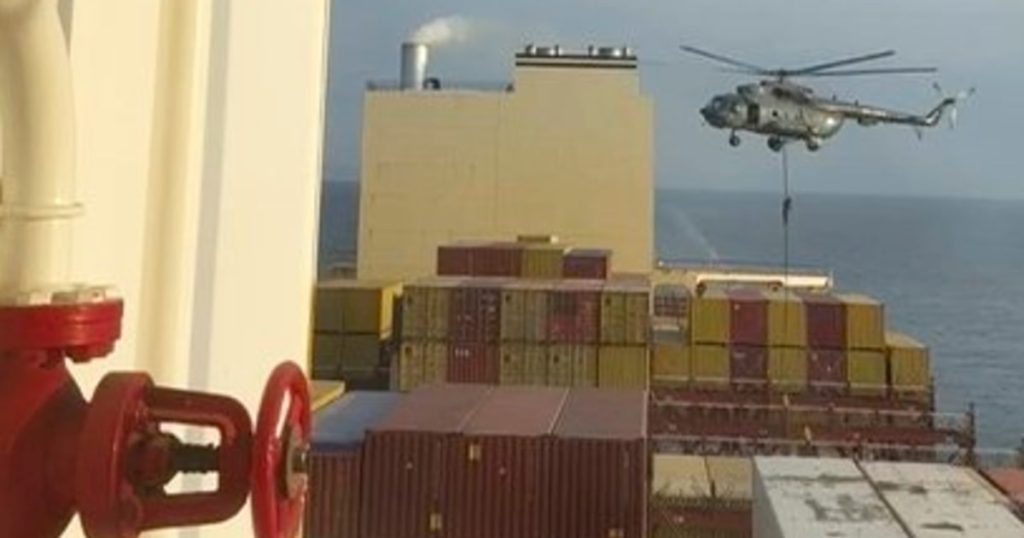The Islamic Revolutionary Guard Corps Navy special forces used a helicopter to board and seize a container ship near the Strait of Hormuz, according to reports from the state-run IRNA news agency. The vessel, MSC Aries, was said to be transferred to Iranian territorial waters. Footage on Press TV showed individuals using a rope to drop onto the ship, although this could not be independently verified by NBC News. The ship, which was Portuguese-flagged and operated by the Zodiac shipping company, was linked to an Israeli businessman. However, Zodiac clarified that the ship is managed and operated by the UK-based shipping company, MSC. Iranian authorities did not issue a public statement on the incident, while the UK Maritime Trade Operations agency confirmed the vessel’s seizure 50 nautical miles northeast of Fujairah, near the entrance to the Persian Gulf.
The Israeli government refrained from commenting directly on the ship’s seizure, with Foreign Minister Israel Katz labeling Iran’s actions as a violation of international law. Israeli military spokesperson Rear Adm. Daniel Hagari warned that Iran would face consequences for escalating the situation further, stating that Israel is on high alert and prepared to defend against Iranian aggression. The attack came after an incident in which the Iranian consular building in Damascus was struck, resulting in the death of a senior member of the Quds Force and five military advisers. While Israel and Iran have previously avoided direct conflict, the IRGC has been engaged in a shadow war with Israel across the Middle East. In response, Ayatollah Ali Khamenei vowed that Israel would be punished for the attack on Iranian soil, signaling escalating tensions between the two countries.
The United States has expressed support for Israel and attempted to persuade Iran to avoid further escalation. President Joe Biden has emphasized the US commitment to Israel’s security in the face of threats from Iran and its proxies, despite criticism of Israel’s handling of the war in Gaza. Iran’s willingness to engage in aggressive actions, such as seizing a commercial vessel, has raised concerns about potential escalation in the region. The Strait of Hormuz, a vital waterway for global oil shipments, has been a flashpoint for tensions between Iran and other countries, including the US and Israel. The involvement of the IRGC in military operations across the Middle East has further complicated the situation, with potential for a broader conflict involving multiple actors.
As tensions continue to rise in the region, diplomatic efforts to prevent further escalation are crucial. The seizure of the container ship by Iranian special forces represents a provocative action that could have significant repercussions. The involvement of a Portuguese-flagged vessel with links to an Israeli businessman adds another layer of complexity to the situation. The response of key players, such as the US, Israel, and Iran, will be closely watched as the situation unfolds. Efforts to de-escalate tensions and prevent further military confrontations are essential to maintaining stability in the region and avoiding a broader conflict with far-reaching consequences. The need for international cooperation and diplomatic engagement to address the underlying issues contributing to regional tensions is paramount in order to prevent further escalation and promote peace and security in the Middle East.


